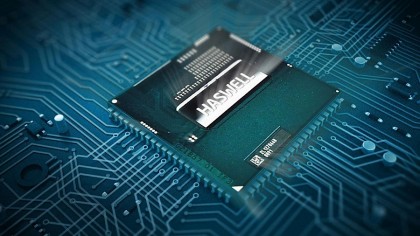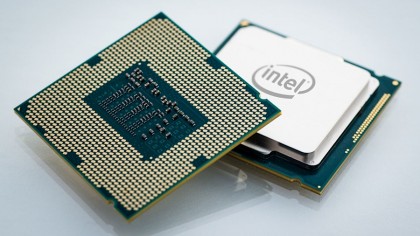Intel processors: what you need to know to get started
Everything you wanted to know, but were afraid to ask
What's in a number?
It's also worth noting that not all Intel Core processor brands are the same, even if they carry the i3, i5 or i7 modifier. There's also an alphanumeric code used to describe the processor model, and each one can tell prospective buyers something about what they can expect from it.
For example, an Intel Core i7-4770K model number breaks down as such: The first number after the brand modifier indicates the generation (in this case, the number four equals fourth-generation), followed by a three-digit numeric stock keeping unit (SKU) that helps differentiate each for the retailer.
The processor may include one or more product line suffixes. In the above example, the trailing "K" signifies an unlocked desktop model with a CPU capable of performing to peak potential, versus other letters like S or T, which are optimized for "lifestyle" performance or power, respectively.
You may have heard Intel processors also referred to by their internal code names. Although you'll rarely see them marketed that way, code names like Sandy Bridge, Ivy Bridge and Haswell have become part of the tech media lexicon in recent years; Broadwell and Skylake are the latest kids on the block.

See you next year
Much like the notebooks, desktops and mobile devices they power, Intel releases new processors on a near-annual basis, so whatever you purchase today will no longer be cutting edge a year from now.
With that wisdom in mind, a notebook or desktop powered by an Intel Core i5 or Core i7 is likely to be the best investment, unless the buyer is financially solvent enough to shell out thousands of dollars for a powerhouse with Xeon inside.
Rumors have been spreading that Intel plans to expand the popular Core series with something called i9, but to date the chipmaker seems content squeezing every bit of potential out of the Core i5 and Core i7 series, which offers the closest thing to future-proofing we're likely to get from a CPU.
Sign up to the TechRadar Pro newsletter to get all the top news, opinion, features and guidance your business needs to succeed!

Speed trio
Speed curious? Here's a look at the top three fastest Intel processors powering desktop and notebook computers, according to 3DMark:
Desktop:
1. Intel Core i7-5960X (12540)
2. Intel Core i7-4960X (12480)
3. Intel Core i7-5930K (12440)
Notebook:
1. Intel Core i7-4870HQ or Intel Core i7-4860HQ (8430)
2. Intel Core i7-4940MX (7170)
3. Intel Core i7-4930MX (7070)